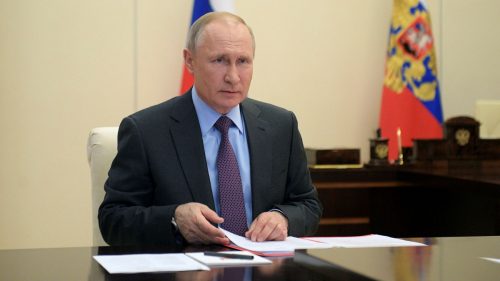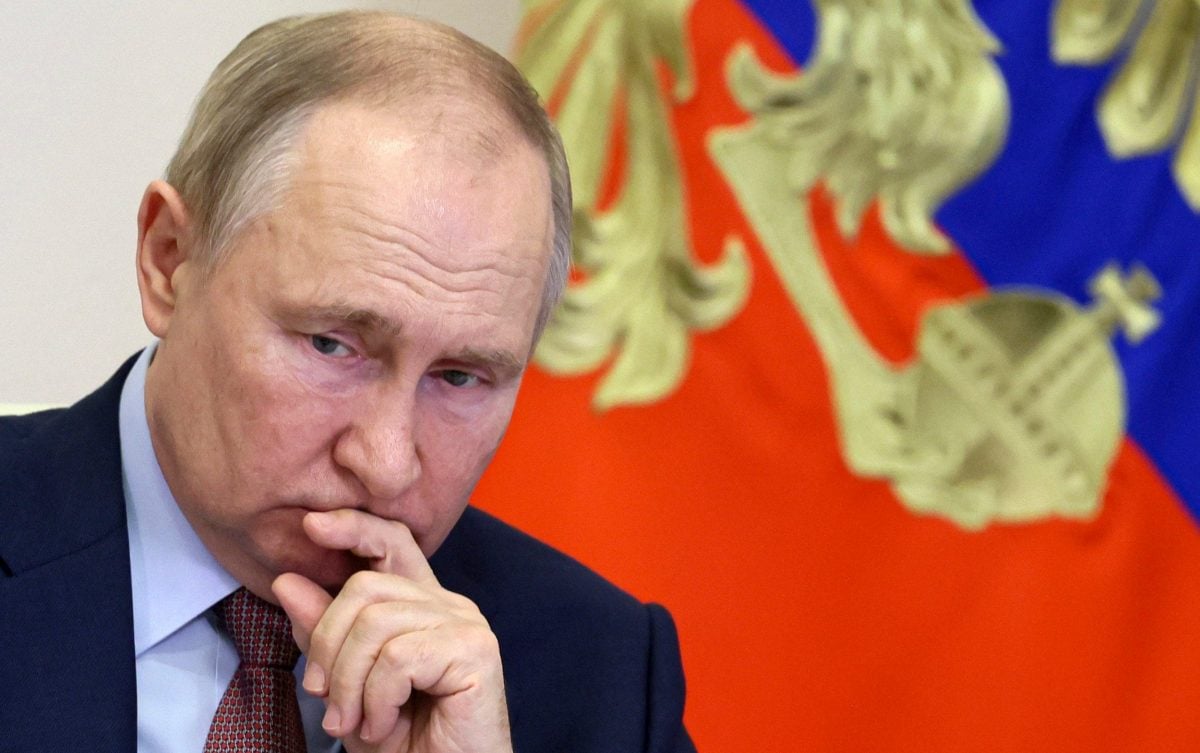Russia is currently studying the adoption of Brent crude prices in the tax accounting of oil-producing companies, in an attempt to compensate for part of the losses incurred due to the European and American sanctions imposed on Russian oil.
The Russian government is moving to adopt a new system in imposing taxes on oil producers based on the price of Brent crude, instead of the Russian Urals crude standard currently in use, according to Reuters, quoting the local daily Kommersant.
From this shift, Russia aims to adopt Brent crude prices to avoid the severe financial damage caused by Western sanctions on the purchase of Russian crude oil in global markets, according to what was monitored by the specialized energy platform.
We will not reduce our production.
The European Union and the Group of 7 imposed an almost complete ban on Russian oil imports that have been in effect since December 5, 2022, as part of the sanctions imposed on Moscow because of its war on Ukraine.
The decision excluded some eastern European countries, such as Bulgaria, Hungary, the Czech Republic and Slovakia; Due to the difficulty of searching for alternatives to Russian oil, which comes through the geographically close Druzhba pipeline.
The embargo decision included imposing a cap on Russian seaborne oil prices of no more than $60 per barrel, in an attempt to put Russia between two options, either to reduce production or to sell at a lower price than global prices. What exposes them to loss in both cases.
The European Union is heading to implement a new ban on Russian diesel imports, starting from February 5, 2023, in an attempt to tighten pressure on Russia by besieging the sale of refined derivatives from Russian crude oil.
Russian Energy Minister Nikolai Shulginov said that his country will not sharply reduce its production of oil or oil derivatives. Due to the upcoming European ban on imports of Russian diesel, according to the latest statement reported by the independent Russian agency Interfax (February 3, 2023).
The Ural barrel loses $40
The December 2022 sanctions widened the difference between Russia’s Urals and Brent crude oil to $40 a barrel, which is huge compared to Russia’s production of 10-11 million barrels per day.
Based on this escalating gap, the Russian government is considering adopting the Brent crude price standard in imposing taxes on oil-producing companies, to compensate for the losses resulting from selling Russian oil at lower prices in markets that do not fear Western sanctions.
Russia diverted most of its oil exports from Asia, after closing the doors of the old European continent to Moscow’s seaborne shipments, since December 5, 2022.
Russia, a member of OPEC, offers attractive discounts to China and India, the two most populous countries in the world. to motivate them to buy Russian oil besieged by Europe and America; What prompted the two countries to buy in huge quantities.
Russia tempts India and China
Moscow sold Urals crude – the traditional benchmark for Russian crude – to India at $49 a barrel in November 2022, according to the specialist energy platform.
Urals crude accounts for 80% of India’s purchases of Russian oil, along with Farandi Blend crude, and other Russian brands produced from Arctic fields.
New Delhi saves huge costs from continuing to buy Russian raw materials at these low prices, which are less than 40% less than international prices, but this is due to the damage to the Russian budget, which was reaping many times that from the sector before the Ukrainian war.
Russia produces different types of oil, most notably the main Urals crude, East Siberia and the Pacific Ocean blend, Farandi blend, Sokol blend, and Sakhalin blend.
Putin asks for suggestions

Last month, Russian President Vladimir Putin ordered the government to draft proposals to amend the tax system imposed on companies towards a model based on Brent crude prices, to compensate for the heavy losses suffered by Moscow from Western sanctions.
The initial ideas put forward to amend the tax system revolve around the criteria for discounts and shipping costs calculated monthly in the case of adopting Brent crude prices, but these ideas have not crystallized into an integrated proposal so far, according to what was monitored by the specialized energy platform.
Brent crude is used as a standard for pricing about 70% of global oil production, especially in European and African markets, and is priced higher than the OPEC basket of oil, by a difference of one dollar per barrel.
And the prices of future contracts for Brent crude for April delivery 2023 amounted to approximately $ 81.9, according to the latest data monitored by the specialized energy platform on February 3, 2023.
Companies may cut production
This tax shift is expected to affect Russian oil companies with higher taxes, which could significantly harm their total revenues. This may force it to cut production plans or negotiate with the government on other mechanisms, according to local newspaper Kommersant.
Oil and gas revenues are a vital resource for Russia’s budget, the third largest oil producer in the world after the United States and Saudi Arabia.
The European embargo and the price ceiling imposed on Russian oil contributed to a drop in Moscow’s revenues from taxes on the oil and gas sector by at least $85 billion in 2022, according to estimates by energy research firm Rystad Energy.
$85 billion in tax losses
Rystad Energy based this estimate on the average trading price of Russian Urals crude in Asian markets during the first year of the Ukrainian war.
The average trading of Russian Urals crude during 2022 ranged between 30 to 40 dollars per barrel, compared to the price of Brent crude, which exceeded 100 dollars per barrel during the first months of the Ukrainian war that broke out in February 2022.
Based on this huge difference between the two crudes, Rystad Energy estimated that Russia’s oil and gas revenues would reach $295 billion in 2022, if calculated on the price of Brent crude.
While these estimates will decrease to 210 billion dollars, a difference of at least 85 billion dollars, if calculated on the average price of Russian crude.
related topics..
Also read..

Leave a Reply